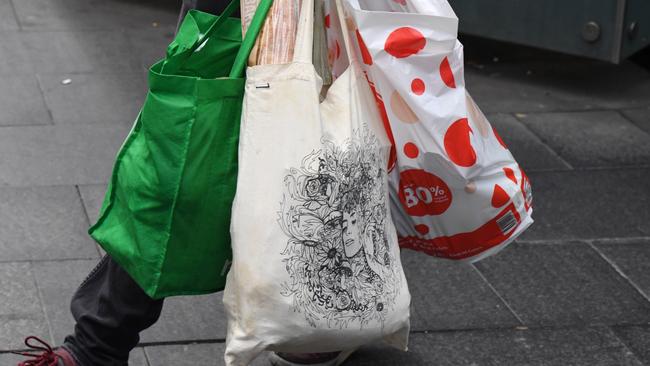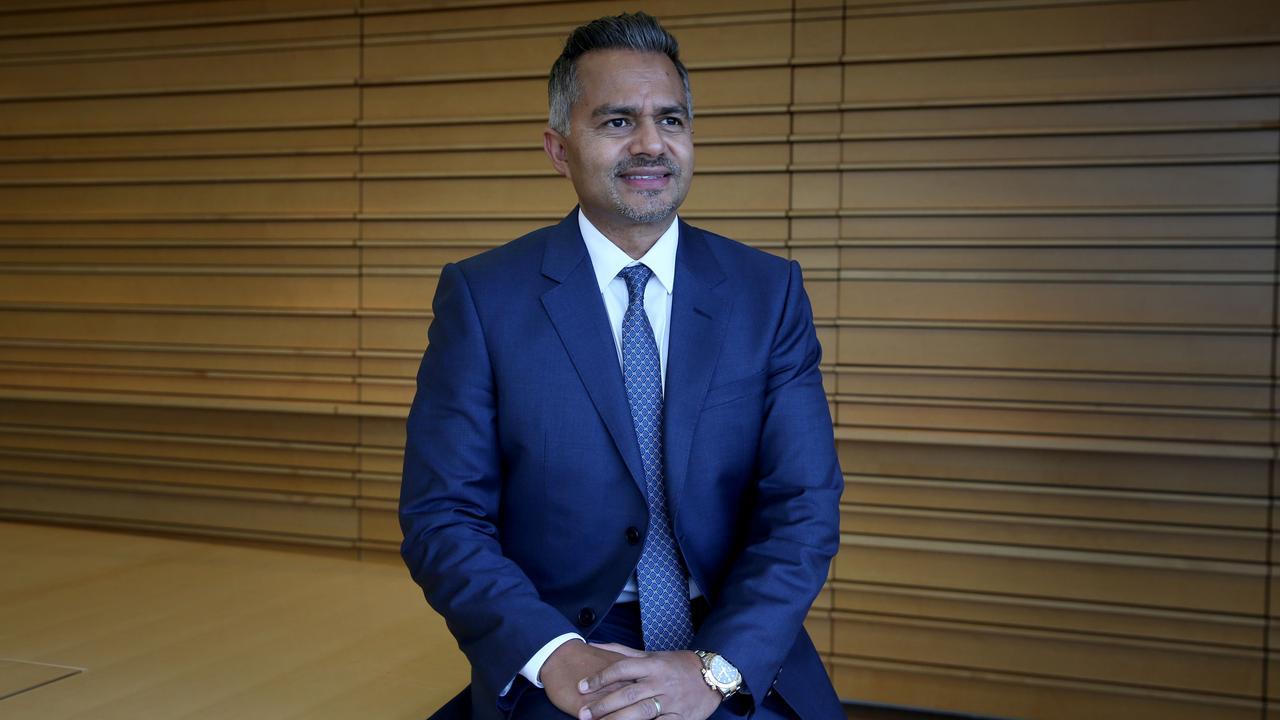Plastic bag ban cuts into Coles and Woolworths sales
The elimination of single-use plastic bags from the nation’s supermarkets is starting to damage sales for Woolworths and Coles.

The elimination of single-use plastic bags from the nation’s supermarkets, which has led to shopper confusion, angst, frustration and the odd scuffle for what the experts believe will be little environmental benefit, is starting to damage sales for leading chains Woolworths and Coles.
Bryan Raymond, a retail analyst at US investment bank Citi also said neither of the supermarkets had handled the switch to multi-use bags very well, with both forced to stretch out the trial period for their offer of free shopping bags to customers to cope with the abolition of plastic bags from the nation’s many thousands of supermarket stores.
Following a deluge of complaints flowing from the removal of single-use plastic bags from Woolworths and Coles this month, also known as ‘plastic bag rage’, both chains have been forced to continue to offer free bags to shoppers instead of charging them 15 cents while they have also had to have extra staff at the check out to help bewildered shoppers.
Coles this morning has also ramped up its marketing around the removal of plastic bags, and acted to support shoppers through the transition, by offering flybuys points to customers who bring their own shopping bags as a way of saying “thank you” for making the transition from single-use carry bags.
From today until stores close on Tuesday July 17, customers who bring their own bags when shopping at Coles supermarkets can simply swipe their flybuys card at the checkout to earn 30 flybuys points. The offer can be used once per day, the supermarket said.
And in a battle for the hearts and minds of shoppers, Woolworths matched Coles offer this morning of giving flybuys points to customers who bring their own shopping bags by unveiling their own loyalty points scheme to smooth the rocky transition to a plastic bag free store.
Woolworths this afternoon said that from tomorrow customers who bring their own reusable bags when shopping at Woolworths will earn bonus Woolworths Rewards points to “recognise their ongoing support to help Australia move towards a greener future”.
This Rewards offer will be available from July 14 until December 31 in Woolworths supermarkets and Metro stores.
Customers will earn two Rewards points for every shopping bag they bring with them to use in-store, whether they are Woolworths branded reusable bags, those of other supermarkets or their own BYO bag of choice. For example, a customer who is doing a small basket shop with two of their own bags will receive four points, while someone doing a larger weekly family shop with 10 of their own reusable bags will earn 20 points, the supermarket said.
Woolworths has 11 million members in its Rewards program.
The use of Rewards or flybuys by the supermarket chains marks a strange new twist in the plastic bag saga that has gripped the shopping nation, and possibly reveals just how difficult and arduous the switch to multi-use bags is proving for the supermarket heavyweights.
Woolworths chief executive Brad Banducci said today the majority of its customers across Australia had embraced the move to a more sustainable way of shopping since it phased out single-use plastic bags.
“We appreciate forming new habits is an adjustment for some of our customers and our recent complimentary bag offer was aimed at providing a little extra help during the transition. We believe now is the time to encourage and reinforce greener habits and hope this Rewards recognition will act as a further prompt for all customers to bring their own bags when shopping with us.”
To ensure customers receive the right Rewards points recognition, store teams will ask customers if they have brought their own bags when they get to the checkout. The team member will then enter the number of bags to ensure customers are allocated the correct points when completing their purchase, Woolworths said.
“Our store teams remain focused on helping shoppers with the transition away from single-use plastic bags over the coming weeks and we encourage customers to speak to a team member if they need further support during this time.”
As of July 1, single-use plastic bags were banned in all states except NSW and Victoria. The bans in Queensland and Western Australia brought them into line with South Australia, the ACT, Northern Territory and Tasmania, but the supermarkets have voluntarily removed the bags from their entire store network.
As customers fuss around with new multi-use plastic bags, try to retrieve their own bags from their coat pockets or seek help from sales assistants it has seemingly slowed down traffic at the checkout and is starting to sour sales for Woolworths and Coles.
“Woolworths and Coles are experiencing sales weakness following the elimination of single-use shopping bags, a significant change which has not been well executed by either retailer,’’ Mr Raymond said in a note to his clients this morning.
The US investment bank Citi believes that the removal of plastic bags is having a particular deleterious impact on sales for customers looking to ‘top up’ their shopping during a store visit. Shoppers often forgetting to bring a bag from home and rather than get a new one at the supermarket, or pay for one, are simply buying fewer items so they can hold it in their hands. Citi has also spoken to grocery suppliers who have reported an impact to sales.
Citi thinks this sales blip is just an adjustment for shoppers and the supermarkets as they become more accustom to the new plastic bag free regimen.
Last year both Woolworths and Coles announced they would strip out all single-use plastic bags from their stores, hoping to remove more than 3.2 billion bags a year from the environment.
The move was welcomed by environmental and activist groups, despite findings in a government report 10 years ago revealing less than 0.2 per cent of landfill was made up of thrown-out plastic bags and that penalising people by charging them for bags was an uneconomic and weak way to reduce litter.
The inquiry by the Productivity Commission, released in 2006, found the case to phase out plastic bags was “particularly weak’’, with the policy of charging money for plastic bags similarly unsound.
But the change has happened anyway, leaving shoppers frustrated as they look for alternatives at the check-out and are forced to do without for plastic bags.
It has forced Woolworths and Coles to ramp up their own publicising of the switch to multi-use plastic bags, including handing out bags for free that were meant to cost 15 cents but have been complimentary in the first month of the changeover.





